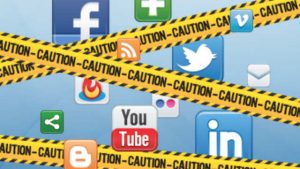Home » Commentary » Opinion » Social media not the biggest threat
· Ideas@TheCentre
 Social media has been blamed for an epidemic of damaging misinformation that has poisoned political discourse. But the real threat to free speech and political debate comes from over-zealous and ill-advised regulation.
Social media has been blamed for an epidemic of damaging misinformation that has poisoned political discourse. But the real threat to free speech and political debate comes from over-zealous and ill-advised regulation.
Mainstream opinion insists social media has damaged democracy by creating a polarised, toxic environment devoid of nuance and fact.
Concern is such that the Australian Competition and Consumer Commission has recommended digital platforms implement a code to counter disinformation, and a regulatory body (like the ACMA) oversee platforms’ “voluntary initiatives…to enable users to identify reliability, trustworthiness, and source of news content.”
Regulatory oversight into misinformation will likely create more problems, and compliance costs will restrict start-ups by creating a huge barrier for entry.
Having sources rated as ‘trustworthy’ has the potential to risk disadvantaging smaller, independent news outlets, as such a designation would presumably favour well-established outlets and brands.
Given Australia’s preoccupation with media concertation, this could, ironically, lead to less viewpoint diversity.
Not only will regulation most likely be ineffective, the ACCC’s concern is based on a problem which is overstated and misunderstood.
As expert in internet governance Professor Milton Mueller has argued, there is the perception social media is the cause of problems such as misinformation. Whereas, far more likely, these technologies have created a hyper-awareness of an already existent problem.
The concern about fake news is entwined with the idea that social media creates ‘filter-bubbles’ or ‘echo-chambers.’ That is, users retreat into online communities and only interact with people who share their views.
However, the extent to which this happens is unclear. Some researchers suggest online communities re-invigorate public debate by democratising communication, and exposing people to a variety of online communities.
‘Filter-bubbles’ are also not exclusive to the online world. People who consume a limited number of offline sources risk only receiving information which re-affirms their views.
Tech companies have issues they need to, and mostly are, addressing. But, the biggest threat to free speech and democracy comes from excessive and unnecessary regulation.
This is an edited extract of a longer opinion piece published in The Spectator’s Flat White section.
Social media not the biggest threat